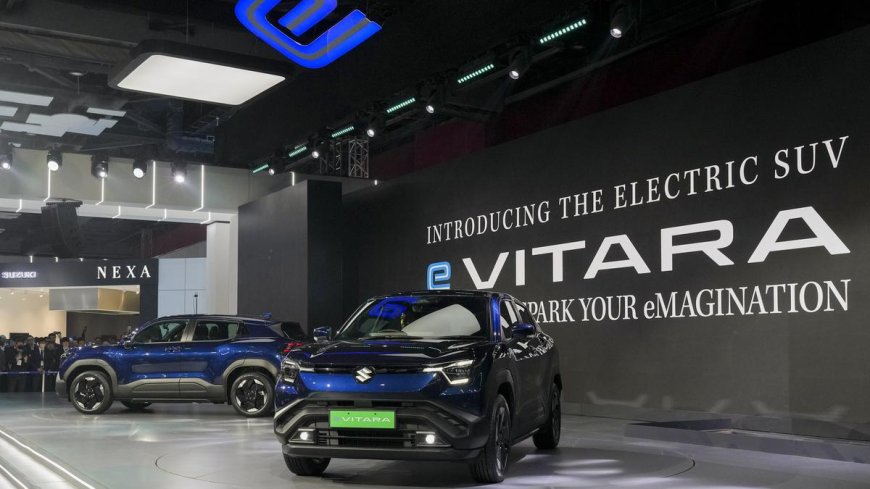Maruti Suzuki cuts near-term EV production amid rare earths crisis

Maruti Suzuki Cuts Near-Term EV Production Amid Rare Earths Crisis
Breaking News, Daily Updates & Exclusive Stories - asarkari
In a significant move that could reshape the landscape of India’s electric vehicle (EV) market, Maruti Suzuki has announced a cut in its near-term EV production. This decision comes in the wake of a crisis surrounding rare earth metals, a critical component in manufacturing electric vehicle batteries. The company, which has long held a dominant position in the Indian automotive sector, is now facing new challenges that could affect not just its operations but also its parent company, Suzuki Motor, given that India is its largest market by revenue and a vital hub for global EV production.
The Impact of Rare Earth Metals Crisis
Rare earth elements are essential for the production of batteries and other key components in electric vehicles. As supply chains are disrupted and prices soar, manufacturers worldwide are re-evaluating their production forecasts. Maruti Suzuki’s latest announcement reflects a broader trend in the industry, which may result in delays in EV rollouts and increased prices for consumers.
Experts have highlighted that the rare earths crisis stems from a combination of geopolitical tensions and excessive demand from the EV sector. This conundrum has forced many automotive companies, including Maruti Suzuki, to slow down their production lines as they strategize on alternative sourcing and develop contingency plans. With the Indian market becoming increasingly competitive, these delays could erode the market share of key players if they cannot keep pace with changing demands.
Maruti's Strategy Going Forward
Maruti Suzuki is taking a proactive stance by seeking alternative materials and forging alliances with suppliers to ensure the steady availability of necessary components. The company's long-standing commitment to sustainability and innovation is likely to drive its response to this crisis. CEO Kenichi Ayukawa stated, "We are reassessing our production plans to mitigate the impact of this situation on our operations. Our commitment to the Indian market remains strong, and we are confident in finding solutions that will sustain our growth." This response underscores the importance of resilience in the face of adversity.
While Maruti Suzuki holds a significant share of the Indian car market, its position must be navigated carefully in the evolving landscape of EVs. Other automakers are also keeping a close eye on their production schedules in light of these developments, indicating a potential ripple effect throughout the industry.
Implications for Consumer and the Market
The slowdown in production may also have consequences for consumers. As the EV market continues to evolve, potential buyers might face higher prices and longer wait times for new models. The current situation serves as a reminder of the complexities involved in electric vehicle production, which extends beyond traditional combustion-engine vehicles. Experts suggest that consumers should stay informed about market dynamics and consider waiting for a broader adoption of more sustainable technologies and solutions in the coming months.
Conclusion: A Path Forward
The rare earths crisis poses an unprecedented challenge for Maruti Suzuki and its peers. While the immediate impacts may ripple through the market, the long-term outlook could encourage innovation and sustainability in the EV sector. Maruti Suzuki’s commitment to overcoming the challenges of the current scenario will be pivotal in shaping the future of electric vehicles in India.
For more updates, visit asarkari.com.
Keywords:
Maruti Suzuki, EV production cut, rare earths crisis, electric vehicles, Indian automotive market, Suzuki Motor, battery supply chain, geopolitical tensions, electric vehicle strategy, consumer implications, sustainable technologies.What's Your Reaction?
 Like
0
Like
0
 Dislike
0
Dislike
0
 Love
0
Love
0
 Funny
0
Funny
0
 Angry
0
Angry
0
 Sad
0
Sad
0
 Wow
0
Wow
0










































